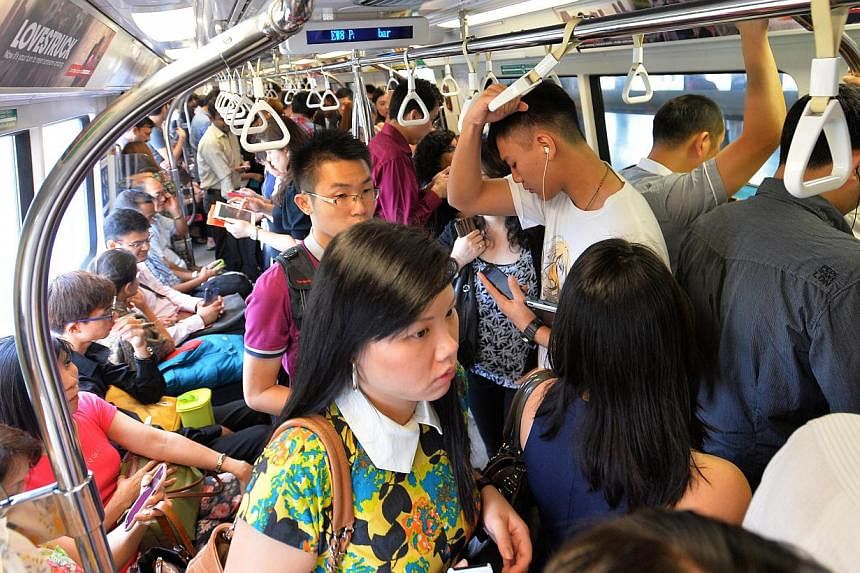Arranging for morning exercise sessions is one way companies can tap government funds to encourage their employees to travel to work early.
The Land Transport Authority (LTA) yesterday launched a Travel Smart Network to help companies shoulder the cost of developing flexible work arrangements.
This is to build on existing travel demand management schemes, and move more commuters out of the congested morning peak hour.
Besides a $30,000 voucher to engage a consultant, a company can get a grant of up to $80,000 a year, for three years, to build transport infrastructure. The LTA will fund 80 per cent and the company, 20 per cent.
A company can get another grant of up to $80,000 a year, also for three years, to pay for promotional activities which will be co-funded on a 50:50 basis.
The infrastructure and activities that can be funded include:
- bicycle parking facilities such as lockers and racks, or the conversion of carparks to bicycle parks;
- shower facilities;
- Travel Smart Day or forums to promote flexible travel arrangements;
- morning programmes such as exercise sessions or breakfast vouchers for early birds;
- coordinator to drive flexible travel plans.
Senior Minister of State for Transport Josephine Teo said the amount each company gets depends on what it puts in place.
"It is not a blank cheque, they do have to put in some effort."
She added that a "sufficient amount" has been set aside for this programme, but did not disclose the amount.
The Travel Smart Network expands on an LTA trial involving 12 firms which have put in place initiatives such as staggered working hours and tele-commuting.
These organisations said one challenge they face is the mindset that flexi-work could affect one's performance appraisal.
At Citi Singapore, employees are allowed to devise work schedules that fit them best. They could have a compressed work week, or have flexible start and end times.
However, its head of human resources Evangeline Chua said a stumbling block is the reluctance of managers to implement flexible work arrangements, for fear that it could affect daily operations.
There is also a general mindset among staff that they may be overlooked or negatively perceived by their colleagues if they utilise flexi-work options, she said.
Another company on the trial, audit firm KPMG, said about 13 per cent of staff eligible for flexi-work have taken it up. Staff turnover has fallen since such schemes were put in place, said Mr Stephen Tjoa, partner for people, performance and culture.
Mrs Teo said employers should make it possible for staff who come in early to go home earlier.
She added that companies under the pilot have found flexi-travel schemes beneficial.
"They find that they benefit from having happier, more productive, more engaged employees. They are able to attract and retain talent to a better extent."


